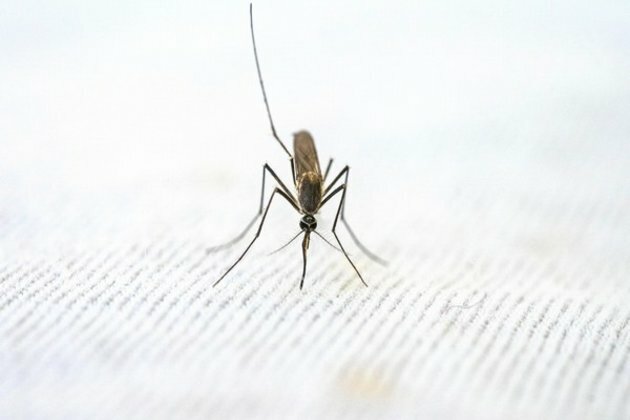Study: Malaria spike linked to amphibian die-off
ANI
22 Sep 2022, 05:48 GMT+10

Washington [US], September 22 (ANI): A new study links an amphibian die-off in Costa Rica and Panama with a spike in malaria cases. The study demonstrates the importance of biodiversity to human health.
The study, published in the journal Environmental Research Letters, links an amphibian die-off in Costa Rica and Panama with a spike in malaria cases in the region. At the spike's peak, up to 1 person per 1,000 annually contracted malaria that normally would not have had the amphibian die-off not occurred, the study found.
"Stable ecosystems underpin all sorts of aspects of human wellbeing, including regulating processes important for disease prevention and health," said lead author Michael Springborn, a professor in the UC Davis Department of Environmental Sciences and Policy. "If we allow massive ecosystem disruptions to happen, it can substantially impact human health in ways that are difficult to predict ahead of time and hard to control once they're underway."From the early 1980s to the mid-1990s, a deadly fungal pathogen called Batrachochytrium dendrobatidis, or "Bd," travelled across Costa Rica, devastating amphibian populations. This amphibian chytrid fungus continued its path eastward across Panama through the 2000s. Globally, the pathogen led to the extinction of at least 90 amphibian species, and to the decline of at least 500 additional species.
Shortly after the mass die-off of amphibians in Costa Rica and Panama, both countries experienced a spike in malaria cases.
Some frogs, salamanders and other amphibians eat hundreds of mosquito eggs each day. Mosquitoes are a vector for malaria. Scientists wondered, could the crash in amphibians have influenced the rise in malaria cases?To find out, the researchers combined their knowledge of amphibian ecology, newly digitized public health record data, and data analysis methods developed by economists to leverage this natural experiment.
"We've known for a while that complex interactions exist between ecosystems and human health, but measuring these interactions is still incredibly hard," said co-author Joakim Weill, a Ph.D. candidate at UC Davis when the study was conducted. "We got there by merging tools and data that don't usually go together. I didn't know what herpetologists studied before collaborating with one!"The results show a clear connection between the time and location of the spread of the fungal pathogen and the time and location of increases in malaria cases. The scientists note that while they cannot fully rule out another confounding factor, they found no evidence of other variables that could both drive malaria and follow the same pattern of die-offs.
Tree cover loss was also associated with an increase in malaria cases, but not nearly to the same extent as the loss of amphibians. Typical levels of tree canopy loss increase annual malaria cases by up to 0.12 cases per 1,000 people, compared to 1 in 1,000 for the amphibian die-off.
Trade threatsResearchers were motivated to conduct the study by concerns about the future spread of similar diseases through international wildlife trade. For instance, Batrachochytrieum salamandrivorans, or "Bsal," similarly threatens to invade ecosystems through global trade markets.
Springborn said measures that could help prevent the spread of pathogens to wildlife include updating trade regulations to better target species that host such diseases as our knowledge of threats evolve.
"The costs of putting those protective measures in place are immediate and evident, but the long-term benefits of avoiding ecosystem disruptions like this one are harder to assess but potentially massive, as this paper shows," Springborn said. (ANI) Share
Share
 Tweet
Tweet
 Share
Share
 Flip
Flip
 Email
Email
Watch latest videos
Subscribe and Follow
Get a daily dose of South America Times news through our daily email, its complimentary and keeps you fully up to date with world and business news as well.
News RELEASES
Publish news of your business, community or sports group, personnel appointments, major event and more by submitting a news release to South America Times.
More InformationInternational
SectionTragedy in Spain: Diogo Jota and his brother die in car accident
MADRID, Spain: Liverpool footballer Diogo Jota and his younger brother, André Silva, have died in a car accident in Spain. Spanish...
Early heatwave grips Europe, leaving 8 dead and nations on alert
LONDON, U.K.: An unrelenting heatwave sweeping across Europe has pushed early summer temperatures to historic highs, triggering deadly...
U.S. military, China, Russia in Space race
President Donald Trump's plans to build a space-based Golden Dome missile defense shield have drawn immediate criticism from China,...
Trump wins $16 million settlement from Paramount over CBS Harris edit
NEW YORK CITY, New York: Paramount has agreed to pay US$16 million to settle a lawsuit brought by U.S. President Donald Trump over...
British PM faces major party revolt over welfare reforms
LONDON, U.K.: British Prime Minister Keir Starmer won a vote in Parliament this week to move ahead with changes to the country's welfare...
White House meeting between Trump, Netanyahu on July 7
WASHINGTON, D.C.: President Donald Trump will meet Israeli Prime Minister Benjamin Netanyahu at the White House on Monday. President...
Latin America
SectionMeenakshi, Pooja, Hitesh lead charge as eight Indians set to fight for gold at World Boxing Cup
Astana [Kazakhstan], July 5 (ANI): India's boxing contingent at the World Boxing Cup, Kazakhstan 2025, will be vying for at least eight...
PM Modi, Argentine President Milei hold delegation-level talks in Buenos Aires
Buenos Aires [Argentina], July 5 (ANI): Delegation-level talks between Prime Minister Narendra Modi and Argentine President Javier...
PM Modi receives warm welcome, shares hug with Argentina's President Milei in Buenos Aires
Buenos Aires [Argentina], July 5 (ANI): President of Argentina Javier Milei and Prime Minister Narendra Modi shared a warm hug as the...
Argentina: PM Modi pays tribute at San Martin Memorial in Buenos Aires
Buenos Aires [Argentina], July 5 (ANI): Prime Minister Narendra Modi paid tribute at the San Martin Memorial in Buenos Aires on Saturday...
Xinhua Headlines: BRICS strengthens momentum, stability in Global South cooperation
* In recent years, BRICS has transformed into a major force fostering cooperation among Global South nations. This collaboration not...
"Prime Minister Modi's commitment towards BRICS has no words to say," says Ambassador Dinesh Bhatia ahead of PM's state visit to Brazil
Brasilia [Brazil], July 5 (ANI): In a significant diplomatic engagement, Prime Minister Narendra Modi is set to make a state visit...













